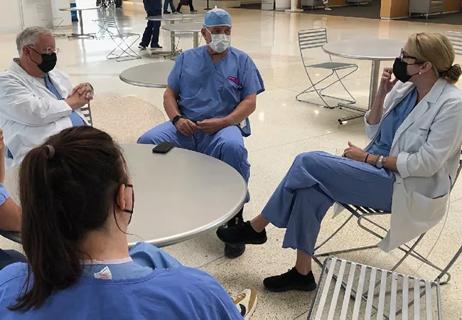
Site visits offer firsthand lessons in clinical and operational excellence in cardiovascular care

How two Cleveland Clinic alliance hospitals systematically elevated echo standards

How Cleveland Clinic supported an alliance hospital to improve early extubation practices

How our HVTI Advisory Services team facilitated swift improvements for an allied health organization
Advertisement
Cleveland Clinic is a non-profit academic medical center. Advertising on our site helps support our mission. We do not endorse non-Cleveland Clinic products or services. Policy

Benefits include swifter patient transport, more on-time starts for cardiovascular procedures

How our Advisory Services and Affiliate Program has helped hospitals drive down SSI rates

How our HVTI Advisory Services team facilitated swift improvements for an affiliated health organization

How a site visit helped Parkview Heart Institute expand its vascular services and improve operations

How it works, and reflections from a longtime alliance hospital

Standardized practices from registries to quality meetings yield efficiencies and value
Advertisement
Advertisement